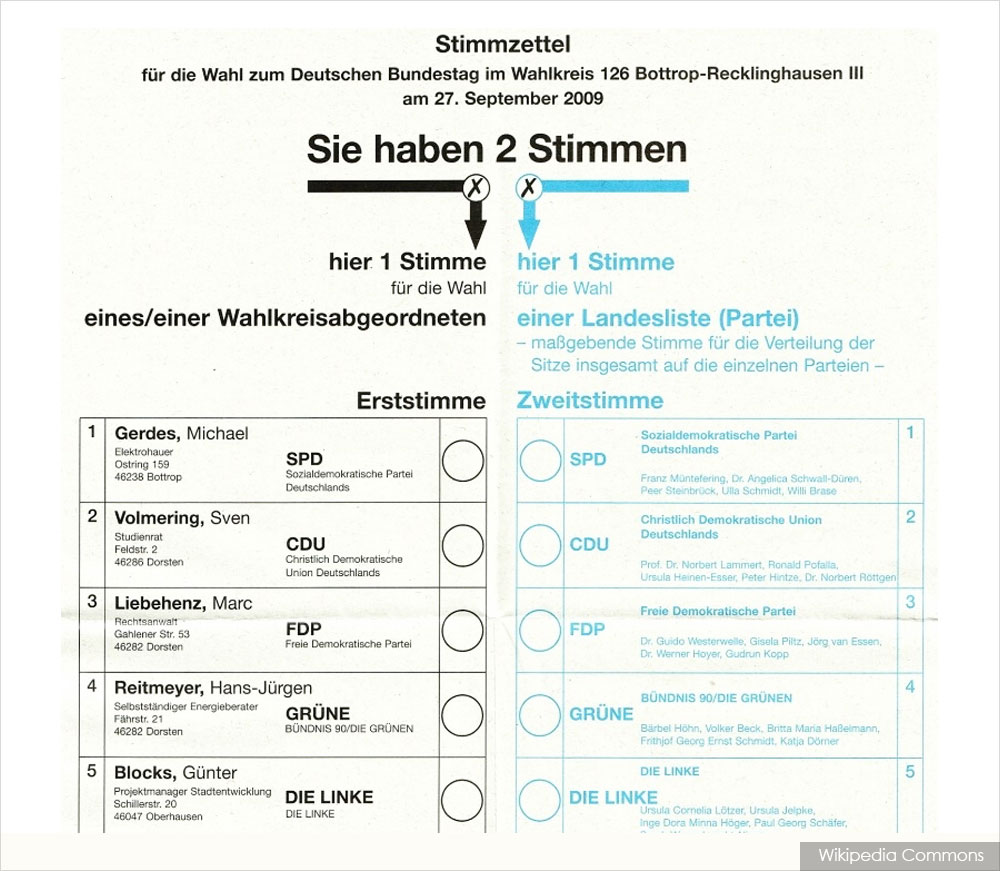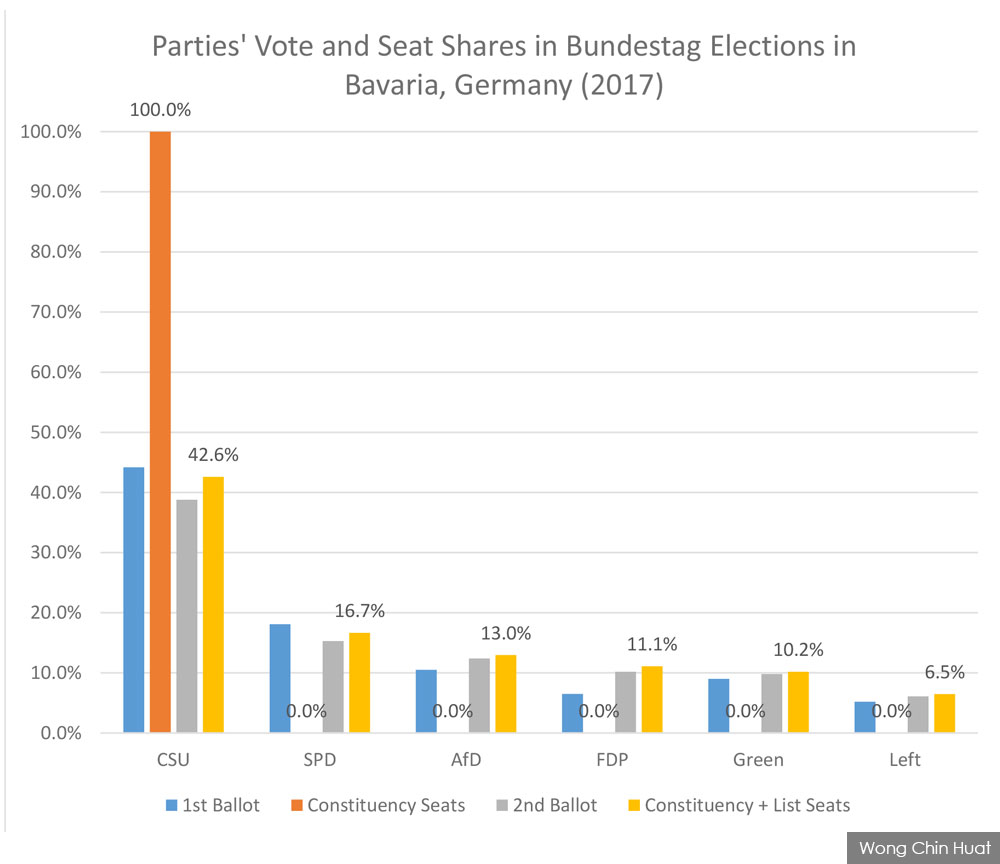COMMENT | Some may wonder why it is worth studying the benefits of German coalition politics when we do not share their electoral system, which is based on mixed member proportional (MMP) representation.
The answer is simple. A host of issues in Malaysia – from patronage to seat disputes within coalitions – are determined structurally by our first-past-the-post (FPTP) electoral system. We should, at the very least, explore alternatives to FPTP, just so we aren't stuck complaining about how our politics keeps letting us down.
Why CSU cannot dominate Bavaria
To appreciate how MMP works, one can look at the interesting election outcome in Bavaria (yes, it has more to offer than BMWs and Oktoberfest).
Germany has 299 electoral constituencies, 46 of those in Bavaria. The conservative Christian Social Union (CSU), sister party of Merkel’s Christian Democratic Union (CDU), swept all 46 electoral constituencies in the recent elections.
This is perfectly possible under FPTP; for example, BN swept all parliamentary seats in Johor in three consecutive elections from 1995 to 2004.
CSU’s clean sweep may conceal the fact that its constituency vote share has sharply dropped by 9.8 percent to 44.2 percent. In fact, CSU was actually rejected by the majority of voters in 41 out of the 46 constituencies. Moreover, in four out of the five constituencies in the state capital Munich, CSU only won between 32.4 and 36.8 percent of votes.
CSU prevailed in 90 percent of the constituencies simply because the opposition could not agree on a common candidate. Using Malaysian logic, anti-CSU opinion leaders in Bavaria would now be lamenting the division of opposition parties.
But why must voters limit their choice to only two candidates from two main blocs? Can’t voters simultaneously support a constituency candidate from one party and also support a different party at the same time?
First vote for constituency, second vote for party
The German electoral system gives exactly that choice to the voters – with two votes.
The first vote is for constituency elections, which works exactly like our FPTP elections, in which CSU swept all constituencies in Bavaria.

But the second vote is for parties. With these second votes, parties can gain “party-list” seats, if they can pass the threshold of winning at least five percent of seats or three constituencies. The candidates are presented in a list with fixed sequences by each party, hence the name “party-list.”
The result is interesting. In every constituency, CSU received less of the second votes than they did the first votes, meaning the party is less popular than their local candidates, everywhere.
In total, CSU’s second vote share was 38.8 percent, or 5.4 percent points lower than its first vote share. In one outlier constituency of Kulmbach, the party (43.4 percent of the second votes) was 12 percent less popular than the candidate (55.4 percent of the first votes).

Under normal circumstances, the German system provides for equal numbers of constituency parliamentarians and party-list parliamentarians. This means Bavaria should have 92 representatives in the Bundestag.
However, the parties’ respective share of second votes determines the total number of seats, with party-list seats making up the difference between seats warranted and seats won.
Let us assume, for example, that a state has 100 seats. If party A wins 30 percent of the vote, it should warrant 30 seats. If party A wins, say, 20 constituencies, it will be given 10 party-list seats to make up the difference. And if it wins 10 constituencies, it will be given 20 party-list seats.
Because CSU won all 46 constituencies despite winning only 38.8 percent of second votes, it did not receive a single party-list seat. But neither would it lose any constituency that it had won.
To curb CSU overrepresentation, party-list seats were increased to 62 and divided among five other parties (due to the additional seats produced in this system, the Bundestag has 709 seats instead of the normal 598 seats.)
And so the final outcome becomes very proportional. CSU would obtain only 42.6 percent of total seats, just slightly higher than its 38.8 percent share of second votes. Thus, there is no one-party dominance in Bavaria.
Were Malaysia to implement a MMP-style electoral system, it would result in a number of benefits...

